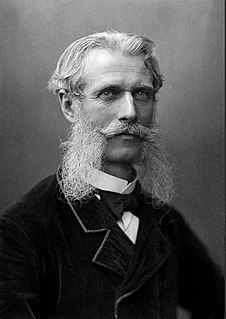A Quote by Jean Liedloff
The broader unquestioned premises upon which my own culture founded its view of the human condition, such as the one that Unhappiness is as legitimate a part of experience as happiness and necessary in order to render happiness appreciable, or that it is more advantageous to be young than to be old: those still took me a long time to pry loose for reexamination.
Related Quotes
Those who wander in the world avowedly and purposely in pursuit of happiness, who view every scene of present joy with an eye to what may succeed, certainly are more liable to disappointment, misfortune and unhappiness, than those who give up their fate to chance and take the goods and evils of fortune as they come, without making happiness their study, or misery their foresight.
It is a basic human need that everyone wants to
live a happy life. For this, one has to experience
real happiness. The so-called happiness that one
experiences by having money, power, and
indulging in sensual pleasures is not real
happiness. It is very fragile, unstable and fleeting.
For real happiness, for lasting stable happiness,
one has to make a journey deep within oneself and
get rid of all the unhappiness stored in the deeper
levels of the mind. As long as there is misery at
the depth of the mind all attempts to feel happy
at the surface level of the mind prove futile.
The paths by which people journey toward happiness lie in part through the world about them and in part through the experience of their souls. On the one hand, there is the happiness which comes from wealth, honor, the enjoyment of life, from health, culture, science, or art; and, on the other hand, there is the happiness which is to be found in a good conscience, in virtue, work, philanthropy, religion, devotion to great ideas and great deeds.
So what is happiness? I am sure this question will be asked through the ages. And I doubt there is one answer for all people. Like heaven and hell, one person's happiness can be another person's unhappiness, which is why I'm not attempting to tell you what to do to find your happiness. I have enough trouble finding and hanging onto my own true happiness.
I had always been taught that the pursuit of happiness was my natural (even national) birthright. It is the emotional trademark of my culture to seek happiness. Not just any kind of happiness, either, but profound happiness, even soaring happiness. And what could possibly bring a person more soaring happiness than romantic love.
[The church] is in its major part an opponent still of progress and improvement in all the ways that diminish suffering in the world, because it has chosen to label as morality a certain narrow set of rules of conduct which have nothing to do with human happiness; and when you say that this or that ought to be done because it would make for human happiness, they think that has nothing to do with the matter at all. "What has human happiness to do with morals? The object of morals is not to make people happy.
In our concern for others, we worry less about ourselves. When we worry less about ourselves an experience of our own suffering is less intense. What does this tell us? Firstly, because our every action has a universal dimension, a potential impact on others' happiness, ethics are necessary as a means to ensure that we do not harm others. Secondly, it tells us that genuine happiness consists in those spiritual qualities of love, compassion, patience, tolerance and forgiveness and so on. For it is these which provide both for our happiness and others' happiness.
Therefore, philosophy does not give sense in mind happiness. It keeps in mind the only truth. However, it is very possible that the truth may be painful, may be distressing, may be destructive of happiness or makes it impossible. Religion, unlike philosophy, is under the category of the useful one. It promises happiness and says what it is necessary to do and what it is necessary to be to deserve or to obtain it. Consequently, illusion is more important than truth if it gets happiness.

































